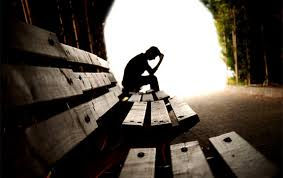Chosen Loss
- Apr 9, 2017
- 3 min read
We think of the processes of grief when we lose someone or something involuntarily - we might lose someone to illness or when a beloved pet can't be found, but often fail to recognize grief in ourselves when the loss is something we’ve chosen. There’s this sense that we’re not supposed to be anything other than ecstatic when we leave an old job for a new one or feel simply relieved when we end a failed relationship after all efforts at mending have stalled. As friends and peers hear the news of our choosing to move on, they offer congratulations and best wishes… when do we get to acknowledge that there is grief with chosen loss too?
There are 5 stages of grief commonly recognized: Denial is the first. If we are considering a serious change, we might think first on how to keep our worries private and tell ourselves everything is fine. As if by stating it, it makes it more real (it does) so there is often a period of time where we might feel moodier, might seem distracted or distant. Thinking of moving to another city or of telling your girlfriend of 2 years it isn’t working? We might be experiencing that first stage if our urge is to protect the secret and keep a bit of distance from our friends and loved ones.

The second stage is anger. Because though, we’ve chosen the change, a lot of that anger can turn inward… we might ask ourselves ‘why am I doing this? What is wrong with me that I can’t just be happy here?’ We might seem snappish or more nitpicky than usual to the people who care about us, and since likely, we’ve not yet decided to clue them in to our chosen change, they’ve no idea why we’re being so prickly. If you find yourself being unusually hateful towards yourself, it might be the second stage of grief.
The third stage is bargaining. When we are the instrument of change, we might be having a lot of internal conversations about now: ‘What if I just commute during the week’ or ‘maybe we should retry couples’ therapy’ or ‘I should try to stick it out through the holidays, at least’. Our loved ones might notice we have trouble making decisions about things as simple as dinner plans. We might feel like if we are opting to change, maybe – we reason – maybe we could decide NOT to change.
The fourth stage is depression. Just because we’re the cause of our change, and we’ve pretty much decided that it is the right course of action, it’s still probably hard to reach out to share what’s been going on. The people who care about us are probably asking us 'what's up, you seem down?' All while we're fighting with being angry at ourselves for feeling bad in the first place: ‘I’m choosing this, why can’t I be happy?’ Or ‘I’m being selfish, thinking about this all the time. I’m causing this, I should suck it up.”
The fifth stage is acceptance. After a lot of self-doubt and secrecy and some pretty internalized negative emotional turmoil that probably, we didn’t share with many people, we should come out the other side accepting that the path we’ve chosen is the right one. That, while it might be difficult, we’re pretty sure the pros outweigh the cons and finally, we’re ready to share our news with others. We can share our decision from a place of contentment, even if it's hard, the indecision should likely not weigh us down much more.
So often, I’ll see folks wading through this alone. Sometimes, I meet them somewhere between bargaining and depression –they’re pissed off and scared to shine a flashlight on what has been until now – solely their inner dialogue. One of the challenges is to (ironically) not help move this process forward but instead, hold space with them as they experience it. Give them time to recognize that what came before wasn’t (usually) all bad and that, while they’ve chosen to move forward, it’s okay to feel loss, it’s okay to wish it had all worked out. That just because you’re ready to try a new place to live or walk away from a romantic partner, doesn’t make that journey much easier than if it had been chosen for you instead of by you. You are the best custodian of your life and how it’s experienced: feeling some pangs for parts of it left behind is okay.






Comments